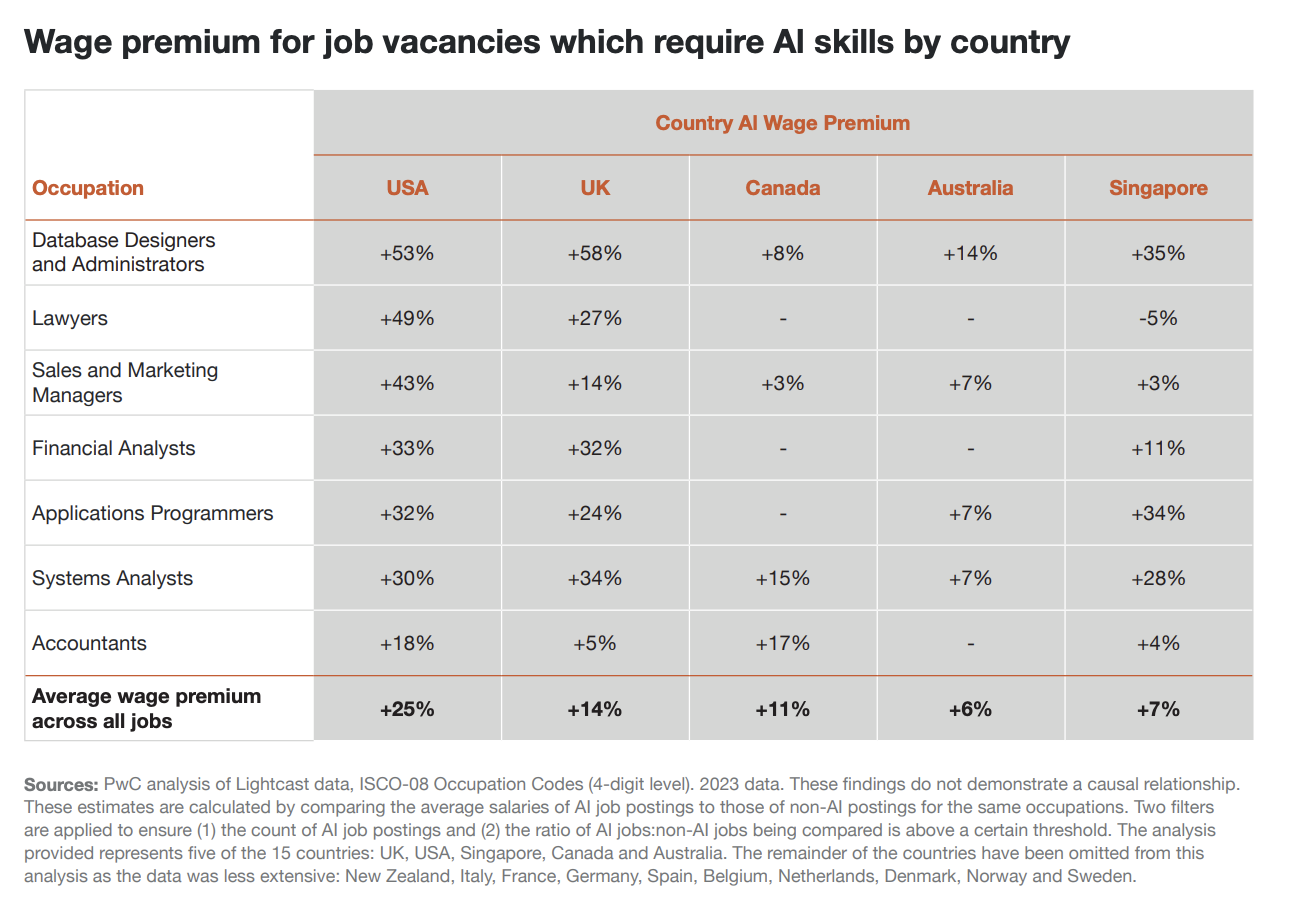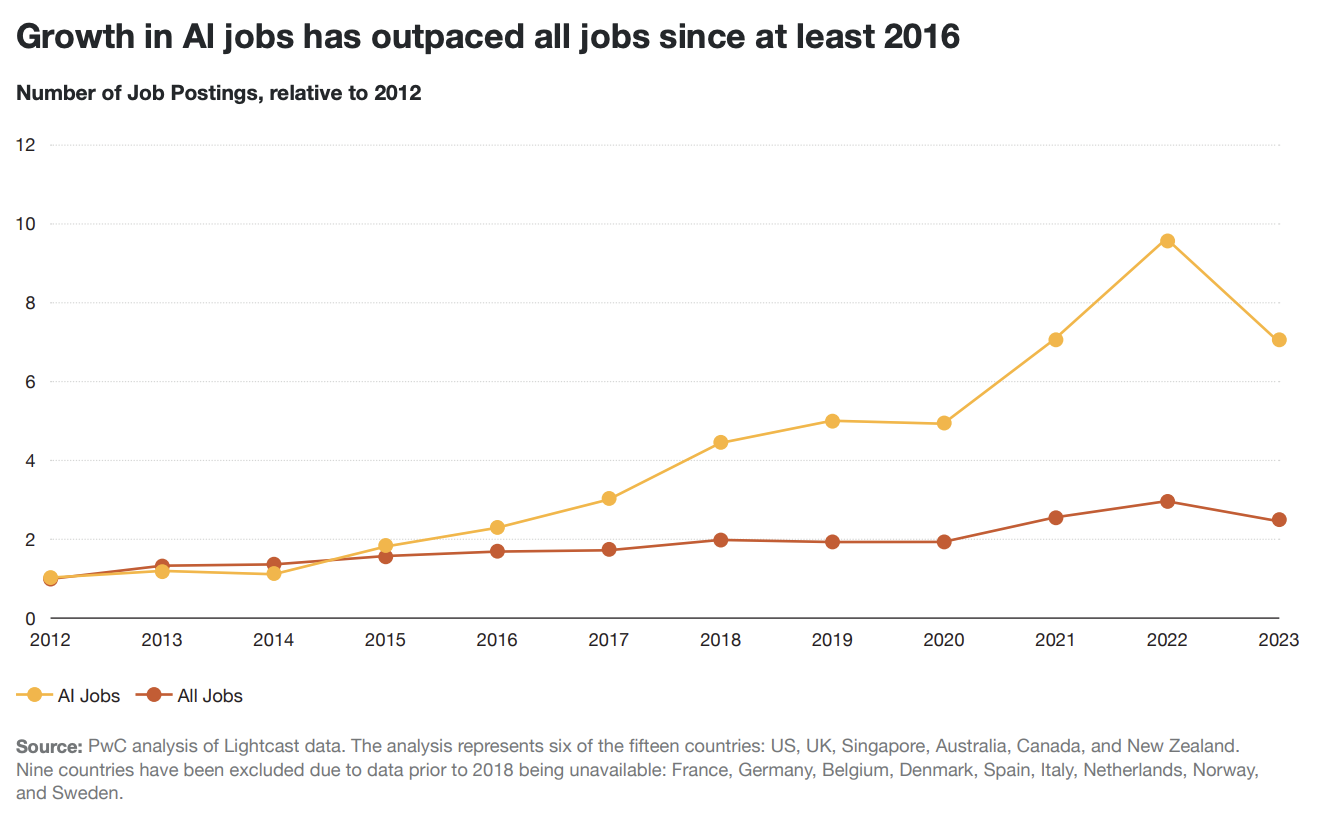
U.S. sees highest wage premiums for variety of AI-related roles

Jobs with AI specialist skills now carry a wage premium of up to 25% in some parts of the world, according to a new report.
PwC's 2024 Global AI Jobs Barometer looked into half a billion job ads from 15 countries to determine AI's impact on jobs, skills, wages, and productivity.
It found that in the United States, wage premium for AI specialist roles reaches an average of 25%, with premiums going up to 53% for database designers and administrators, according to the report.
In the United Kingdom, the wage premium hits an average of 14% for job vacancies requiring AI skills. It reaches an 11% wage premium in Canada, six per cent in Australia, and seven per cent in Singapore.

"AI's value to companies is made clear by what is happening with the wages of workers with AI specialist skills - the very people who are making the AI revolution possible," the report read.
Meanwhile, the report also found that job openings for roles that require specialist AI skills have grown 3.5 times faster than openings for all jobs since 2012.
According to the report, AI's impact on the jobs market begun in 2012 before peaking a decade later in 2022 following the launch of ChatGPT3.5
"The 2022 peak in job postings above represents exceptionally high demand for workers, which gradually eased in2023 as job market conditions returned toward normal," the report read.

The stronger demand for AI-skilled employees, as shown in wage premiums and massive job postings, comes as business leaders acknowledge the benefits from AI.
The report found that sectors more exposed to AI have reported 4.8 times higher growth in labour productivity.
Carol Stubbings, Global Markets and Tax & Legal Services (TLS) Leader, PwC UK, said this "good news" for the global economy, which is facing economic challenges and long-term business viability.
"For many economies experiencing labour shortages and low productivity growth, the findings highlight optimism around AI with the technology representing an opportunity for economic development, job-creation, and the creation of new industries entirely," Stubbings said in a statement.
She warned employees, however, of the implication of the transformation, especially with more roles requiring AI skills.
"The findings show that workers will need to build new skills and organisations will need to invest in their AI strategies and people if they are to turbocharge their development and ensure they are fit for the AI age," Stubbings said.